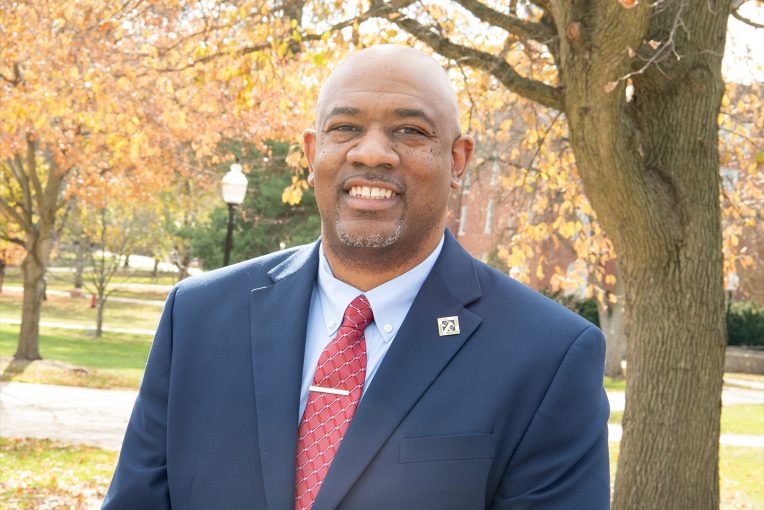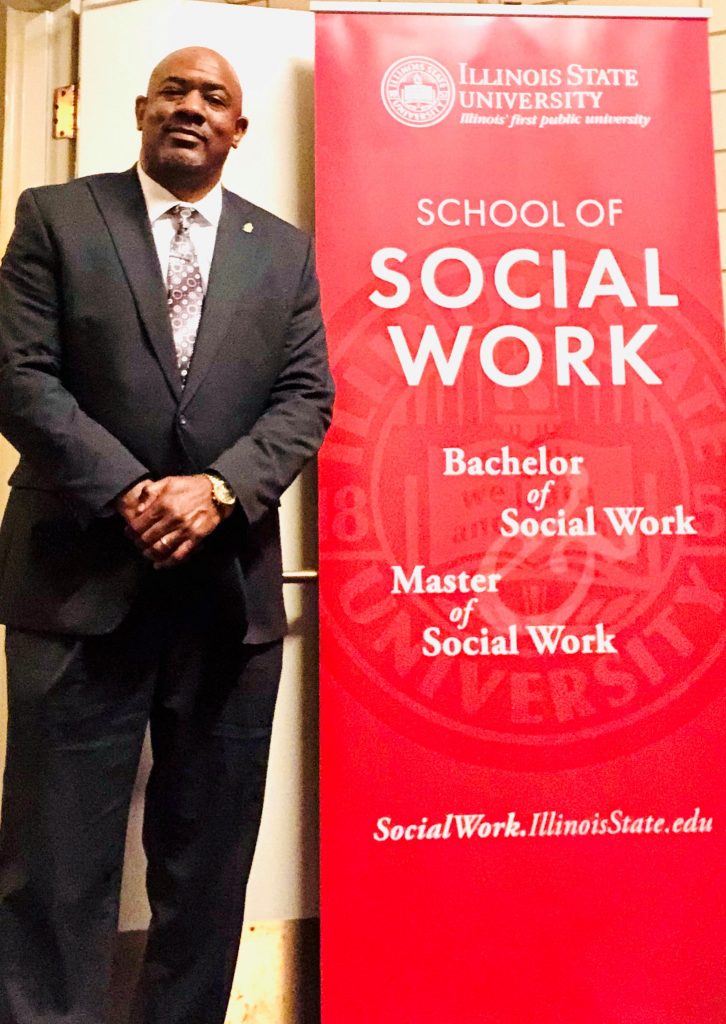Dr. Nathan Stephens usually begins class with a check-in.
“I’ll ask, ‘How are you all doing?’” said Stephens, an assistant professor in the School of Social Work at Illinois State University. In the beginning of the semester, students might mumble a quick, one-word answer. “It takes them a while to believe it, but I ask because I want to know how they are really doing.”
Stephens’ research focuses on the transition of students into college and post-college success. Most of his studies concentrate on the experiences of Black males. “It can be a challenge in that there is no one Black male experience,” said Stephens, noting the intersectionality of identities. “A Black male from an upper-class family can have a very different experience than one who grew up in poverty. A Black male who is Catholic can have different experiences than one who is a Black Muslim. A Black LGBTQ+ male can have a different experience than one who is cisgender or heterosexual.”
As men, they are not supposed to ask for help. They are supposed to do it on their own.
Dr. Nathan Stephens
In his work, Stephens often looks to common themes that society in the United States can impose on young, Black men, such as imposter syndrome—the internalized fear that one is not enough enforced through external messages. “Society is always challenging minoritized and marginalized identities,” he said. Black men in the United States face added pressures, noted Stephens, such as maintaining an aura of masculinity, fulfilling the illusion of rugged individualism, and navigating predominantly white spaces. “As men, they are not supposed to ask for help. They are supposed to do it on their own,” said Stephens. “I’ve had students say to me, ‘I’ll sit in class and not say anything, because I do not know what to say.’”
To combat some of the pressures, Stephens is examining how a collective sense of community can provide a foundation for Black, male students. He is presently working with the National Association of Black Social Workers (NABSW) to learn African-centered social work. “It is an Afro-centric approach that makes it okay to come to others, or come to the metaphorical village, to ask for help and to find answers,” said Stephens, who works to establish community in his classroom.
“If I see people are having a hard time being present mentally or emotionally, we’ll take time in the class and talk about it,” said Stephens. “They are still responsible for the material in class, but there are days students need to feel like people are asking them how they are doing, and that they are listening to what they say.”
Stephens’ background in student affairs has aided in his knowledge of community building. Before joining the faculty at Illinois State in 2020, Stephens was the director of the Bruce D. Nesbitt African American Cultural Center at the University of Illinois at Urbana-Champaign. He founded the Mizzou Black Men’s Initiative (MBMI) in 2009 at the University of Missouri-Columbia and served as the director of the now defunct Center for Inclusive Excellence at Southern Illinois University-Carbondale.
“I can tell you; I hear the same challenges everywhere I go,” said Stephens. “And, I hate to say it, but I hear similar problems in 2022 that I heard in 2009.”
Students need to feel like people are asking them how they are doing, and that they are listening to what they say.
Dr. Nathan Stephens
Stephens’ next research project will take an international approach. He is currently collaborating with Dr. John Peter Wainwright of the University of North Central Lancashire in the United Kingdom, looking at the adjudication of young, Black males within education and the juvenile justice system. “We’re studying disparities in areas such as healthcare, educational achievement, incarceration, and underemployment,” said Stephens. “The same things are happening thousands of miles apart in two separate countries. How is that possible?”
No matter how far his research takes him, Stephens said he hopes his work will have an impact on individuals no further than his classrooms. “I love my job in the faculty of the School of Social Work,” said Stephens, who shares his upbringing amid poverty always included connections within community, and an expectation of helping others. “People asked me when I started in 2020, why social work? And I tell them, ‘That’s how I was raised. My family and community modeled helping other people.’”


